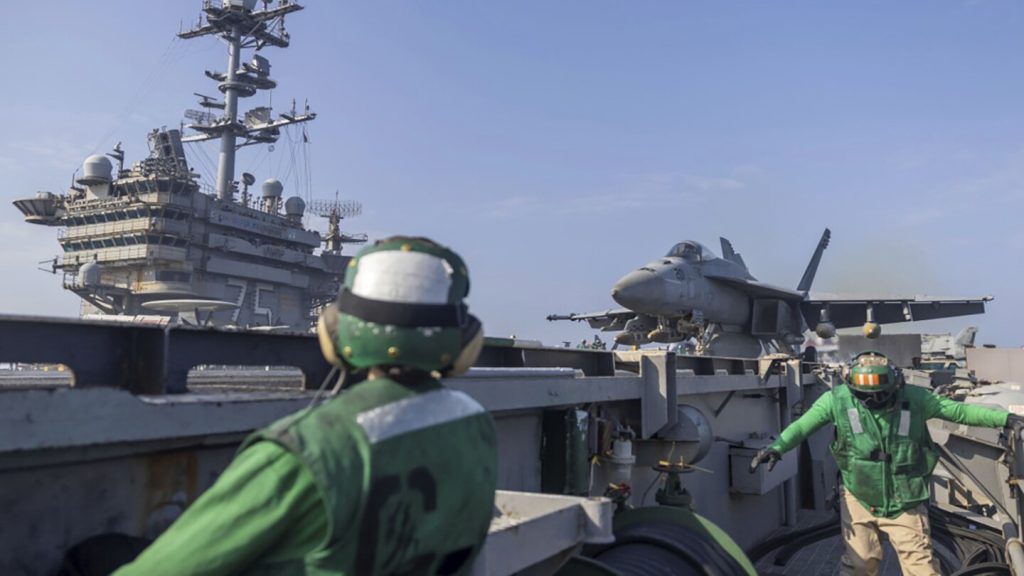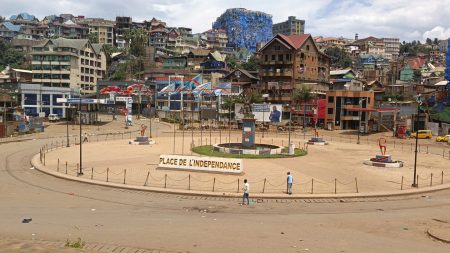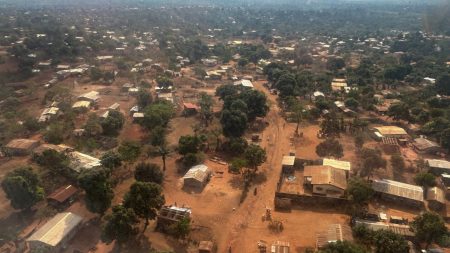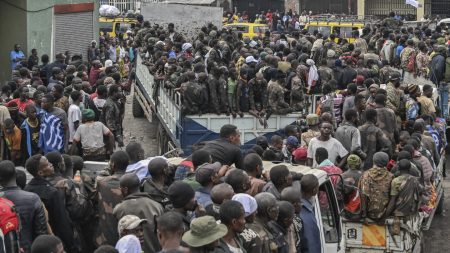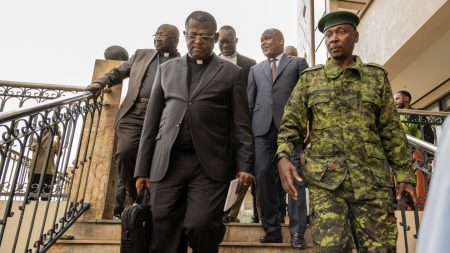U.S. Conducts Airstrikes Against ISIS in Somalia: A Significant Step in Counterterrorism
The U.S. military recently carried out airstrikes against Islamic State (ISIS) operatives in Somalia, marking the first such operation in the African nation during President Donald Trump’s second term. The strikes, conducted by U.S. Africa Command, were authorized by President Trump and coordinated with the Somali government. This operation underscores the ongoing efforts to combat terrorist groups in the region and highlights the evolving dynamics of U.S. counterterrorism strategy in Africa.
The Operation and Its Significance
According to Defense Secretary Pete Hegseth, the airstrikes targeted ISIS operatives, with initial assessments indicating that multiple terrorists were killed. The Pentagon emphasized that no civilians were harmed during the operation, a critical point in modern warfare where minimizing collateral damage is a top priority. President Trump took to social media to announce the success of the mission, revealing that the operation targeted a senior ISIS planner and recruits. He also claimed that the strikes destroyed the caves used by the terrorists, emphasizing the precision and effectiveness of the operation.
While Trump did not specify whether the senior planner was killed, his post underscored the broader message of the operation: to demonstrate the U.S. commitment to hunting down and neutralizing terrorist threats. The president also took the opportunity to criticize his predecessor, Joe Biden, alleging that the previous administration had been slow to act against the same target. This rhetorical jab reflects the ongoing political debate over counterterrorism strategies and the urgency with which each administration approaches these threats.
Somalia’s Role in the Operation
The Somali government welcomed the operation, with President Hassan Sheikh Mohamud’s office releasing a statement that praised the strong security partnership between the two nations. The statement emphasized Somalia’s resolve to work with international allies to combat extremism and ensure regional stability. This collaboration is crucial, as Somalia has long been a battleground in the fight against terrorism, with groups like al-Shabab and ISIS actively operating in the country.
The operation also highlights the significance of Somalia in the broader counterterrorism landscape. The country’s vast and remote territories, particularly in regions like the Galgala Mountains, have become hideouts for terrorist groups. By conducting airstrikes in these areas, the U.S. aims to disrupt ISIS’s ability to plan and execute attacks, both locally and internationally. The cooperation between the U.S. and Somali governments is a testament to the importance of bilateral partnerships in addressing shared security challenges.
The Pentagon’s Counterterrorism Strategy in Africa
The U.S. military’s counterterrorism efforts in Africa have faced significant challenges in recent years. Two key partners, Chad and Niger, expelled U.S. forces in 2023, taking control of military bases that had been crucial for training and conducting missions against terrorist groups in the Sahel region. This shift has complicated U.S. operations in the area, as the Sahel remains a hotbed of terrorist activity.
Despite these challenges, the U.S. has maintained its focus on disrupting terrorist networks in Africa. The recent airstrikes in Somalia are part of this broader strategy, which includes targeting ISIS cells that have reportedly received increased direction from the group’s leadership in northern Somalia. These cells have been instructed on tactics such as kidnapping Westerners for ransom, enhancing military capabilities, evading drone surveillance, and even constructing small quadcopters for their operations.
The Emergence and Evolution of ISIS in Somalia
The ISIS affiliate in Somalia emerged in 2015 as a breakaway faction from al-Shabab, al-Qaida’s East African affiliate. The group, led by Abdulkadir Mumin, has primarily operated in the Puntland region, particularly in the Galgala Mountains, where it has established hideouts and training camps. While its influence is relatively limited compared to al-Shabab, ISIS in Somalia has been involved in attacks across southern and central Somalia.
The group funds its activities through extortion, smuggling, and illicit taxation, particularly in coastal areas where it seeks to control local businesses. Despite facing pressure from Somali security forces, U.S. airstrikes, and rivalries with al-Shabab, ISIS in Somalia continues to operate in remote and urban areas. The group’s strategy involves expanding its influence through recruitment and propaganda, often targeting disillusioned or marginalized individuals. Estimates suggest that the number of ISIS militants in Somalia is in the hundreds, with many scattered in the Cal Miskaat mountains of Puntland’s Bari region.
Conclusion: The Broader Implications of the Operation
The airstrikes in Somalia are part of a larger U.S. effort to disrupt terrorist networks across the globe. Just days before the operation in Somalia, U.S. Central Command conducted airstrikes in northwest Syria, killing a senior operative in Hurras al-Din, an al-Qaeda affiliate. These operations demonstrate the U.S. military’s commitment to targeting terrorist groups wherever they operate.
The success of the Somalia operation depends not only on the immediate results but also on the long-term impact on ISIS’s ability to plan and execute attacks. By targeting key figures and disrupting their infrastructure, the U.S. aims to weaken the group’s capabilities and deter further violence. However, the challenges posed by the expulsion of U.S. forces from Chad and Niger, as well as the evolving tactics of terrorist groups, highlight the complexity of modern counterterrorism efforts.
Ultimately, the airstrikes in Somalia serve as a reminder of the enduring threat posed by terrorist groups and the need for sustained international cooperation to address it. As the U.S. continues to adapt its strategy in Africa and beyond, operations like these will remain a critical component of the global fight against terrorism.





